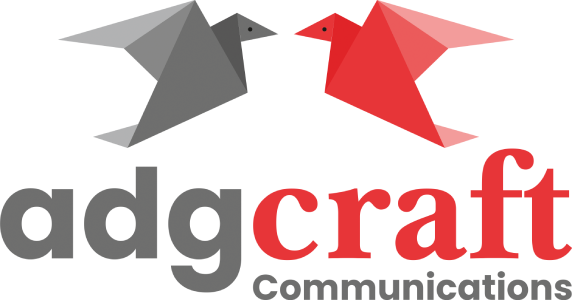Good communication strengthens teams, motivates people to perform at their best, and improves relationships. Communication is one of the most important social skills for everybody to have in order to thrive and actively participate in this society. When you communicate effectively, you ensure that you not only express your message but also your feelings and emotions. Effective communication helps people get through life’s responsibilities with ease, whether it’s among family members, friends, or coworkers. Recognizing body language cues and using good listening skills are two of the factors required in building and maintaining enduring and real connections through communication. When these factors are implemented correctly, the quality of social interactions strengthens, and one’s confidence in engaging with people at social functions grows.
In today’s frantic world, we depend significantly on exchanging information. As a result, excellent communication skills are more necessary than ever before. In order to deliver and understand information quickly and accurately, good verbal and written communication skills are vital. Developing improved communication practices involves the implementation of several key skills that work seamlessly. Some of these skills are more emotionally based interpersonal skills, while others involve the way you speak or hold your body.
Listed below are a few characteristics of effective communicators
- Active listening is the foundation of effective communication. An effective communicator uses various listening techniques and pays attention to what others are saying and makes others feel heard and taken into consideration.
- Being able to empathize with others’ feelings is an important aspect of being a good communicator. Empathizing entails both comprehending and empathizing with another person’s sentiments.
- Nonverbal cues, in addition to verbal messages, are used in effective communication. Your communication and presenting abilities will improve if you become more conscious of your body language and vocal tone.
- Teamwork: An important aspect of developing your corporate communication skills is the capacity to actively engage in team-building and continuously interact with coworkers.
Effective Communication Skills in Public Relations & Marketing
In the realms of public relations and marketing, mastering a range of communication skills is essential for success. While it’s rare for professionals in these fields to excel in every aspect of communication, newcomers need not feel overwhelmed. Strategic specialization coupled with a commitment to ongoing education and experience enhancement is key.
1. Writing
Solid writing skills remain indispensable in the face of advancing technologies. Effective public relations and marketing writing demands clarity, conciseness, compelling content, and meticulous error-free execution. Proficiency in the inverted pyramid style—a journalistic approach placing main points first, followed by supporting details—is a crucial aspect of this skill.
2. Public Speaking
Public speaking skills are a necessity, given that professionals in these fields frequently address clients, reporters, customers, and community representatives. Successful public speaking involves a blend of audience analysis, speech writing, and delivery. Understanding and responding to audience needs, crafting attention-grabbing statements, and employing a structured speech format with an engaging introduction, clear thesis, main points, summary, and clincher are vital. Delivery skills encompass eye contact, varied pitch, a smooth vocal rate, and minimizing vocal fillers like “ah” or “like.”
3. Non-verbal Communication
Public relations and marketing experts leverage nonverbal communication techniques to enhance verbal or written messages and adapt to the needs of clients, management, or teams. Key nonverbal elements include eye contact, posture, gestures, and active listening.
4. Leadership
Given that many communication and marketing goals involve collaborative efforts, leadership skills are indispensable. Professionals in these fields need to comprehend various leadership theories—such as transformational, transactional, or situational—and choose the most suitable approach based on team needs. Effective communication is used to inspire team members and hold them accountable for assigned tasks.
5. Research
Communication research forms the backbone of successful public relations and marketing campaigns. Proficient professionals understand how to align research methods—such as surveys, focus groups, or interviews—with specific research questions. Utilizing writing, public speaking, and nonverbal communication skills, they craft survey questions, manage focus groups, and conduct interviews with precision.
How to improve your communication skills? Let’s find out.
1. The Ideal Approach
Understanding on self’s state of mind is very important before expressing to ensure clarity in thoughts. Strong emotions of distress like anger, irritation, tiredness, grief, and rage, among other feelings, might make it difficult to explain what you want.
2. Keep it Short and Sweet
One of the main reasons for miscommunication is unnecessary information and lengthy explanations. Keep your message simple without compromising its relevance.
3. Engage Your Audience
Involve your listeners and readers in the discussion. Pose questions and seek feedback.
4. Take Your Time In Responding
After you’ve listened (and comprehended), take some time to “sketch” what you want to say in your brain.
5. Maintain Eye Contact With The Other Person
Maintaining and establishing eye contact with your audience, whether speaking to a group or one-on-one, establishes trustworthiness and displays that you care about your audience.
6. Respect Your Audience
Recognize that your message isn’t solely about you or your objectives. Paying attention to what one is saying is one of the best ways to show your appreciation and encouragement.
Prioritizing and working persistently on how to always improve your communication abilities is required to become an excellent communicator. Effective communicators are socially skilled and have control over how they express their thoughts and feelings to others. Recognize what is appropriate to say in a variety of interpersonal circumstances.
Improving your team’s function as well as your company’s bottom line can both benefit from better communication. You’ll be more successful at motivating people if you’re more adept at communicating your ideas. Learning the basic fundamentals of successful communication will help you become a successful and more decisive leader and improve workplace productivity.



